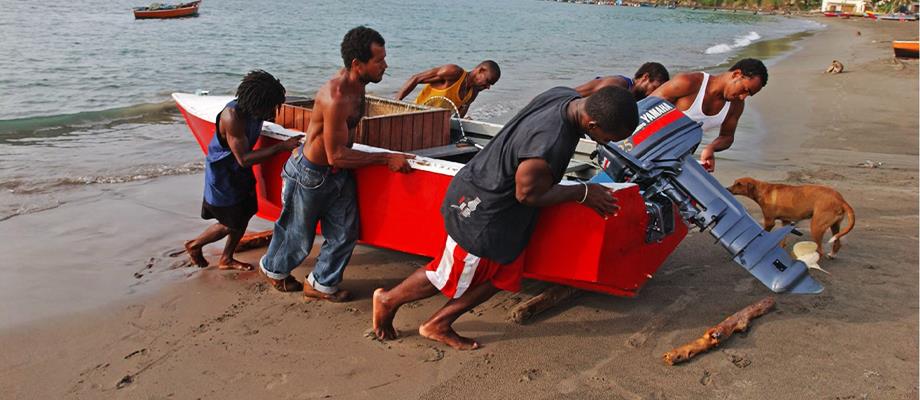Overview: the role of Civil Society Organisations play in the implementation of the SSF Guidelines

Paragraph 10.6 of the SSF Guidelines: Small-scale fisheries stakeholders should promote collaboration among their professional associations, including fisheries cooperatives and CSOs. They should establish networks and platforms for the exchange of experiences and information and to facilitate their involvement in policy- and decision making processes relevant to small-scale fishing communities.
The ‘Global Strategic Framework in support of the implementation of the SSF Guidelines’ enables everyone to contribute to the implementation of the SSF Guidelines. To find out more, please follow this link. Additionally, please see here for the role the ‘Advisory Group play in the Global Strategic Framework in support of the implementation of the SSF Guidelines’.
|
|
Civil Society Organisation (CSOs) sit at the boundary between the many fishers and fishworkers whom the SSF Guidelines are intended to support, and the institutions and processes to drive the necessary political change required to secure their livelihoods, the sustainable management of natural resources, and the full contribution to global food security and nutrition. CSOs play a crucial role in ensuring that the issues directly affecting small-scale fisheries are identified and communicated to relevant partners. Being either composed of small-scale fisheries representatives or their supporters, CSOs are in a position to identify the root-cause of challenges and advise on appropriate methods to resolve these challenges, and also to identify opportunities and drive innovation.
In the six years prior to the endorsement of the SSF Guidelines in 2014, CSOs were actively engaged with the FAO and its Member States in driving the development of this policy instrument. CSOs involved in this process included the World Forum of Fisherpeople (WFFP), the World Forum of Fish Harvesters and Fishworkers (WFF), the International Planning Committee on Food Sovereignty (IPC), and the International Collective of Fishworkers (ICSF). Then, after the SSF Guidelines’ endorsement, the FAO Fisheries Division held a series of workshops entitled ‘Towards the implementation of the SSF Guidelines’. These were held in Latin America, North Africa and the Near East, East Africa, West and Central Africa, the Indian Ocean, South and Southeast Asia. Present at each workshop were CSOs that enabled their membership to participate and express the challenges that were facing small-scale fisheries in the region. Without the CSOs on this and similar occasions it would be very difficult to accurately portray, dismantle and resolve relevant issues. For example, the implementation of the SSF Guidelines in the Central American context was recently revisited in November 2020 when fisheries and aquaculture authorities, fishermen's organizations and CSOs met to discuss their progress, resulting in the new guidance document ‘La implementación de las Directrices PPE en los países de OSPESCA’.
CSOs can also be a sounding board on behalf of their members at major political processes such as the Committee on Fisheries (COFI) and the Committee on Food Security (CFS). A unique example of this is the IPC Working Group on Fisheries, who hosts and coordinates a space through which small-scale fisheries representatives from around the world can channel the views of their communities into international political decision-making bodies. The key role played by the IPC Working Group on Fisheries in developing the SSF Guidelines was acknowledged by COFI when, two years after the SSF Guidelines’ endorsement, with the establishment of the FAO SSF Umbrella Programme and the Global Strategic Framework in support of the implementation of the SSF Guidelines (SSF-GSF), the IPC Working Group on Fisheries was identified to act as the SSF-GSF Advisory Group.
CSOs also play an important role in facilitating participatory research, monitoring and management. The principle of participation is a central tenant to the SSF Guidelines human rights-based approach (HRBA) as was elucidated in the online consultation How to monitor the implementation of the Voluntary Guidelines for Securing Sustainable Small-Scale Fisheries? Numerous reasons were provided justifying the need for a participatory approach; for example, establishing adequate legal provisions would guarantee stakeholder ownership and encourage local participation and commitment.
Fundamentally, CSOs play a number of roles in ensuring the application of the SSF Guidelines in different regions of the world is done in an inclusive and equitable fashion. Please follow this link to read testimonies from CSOs we work with.

